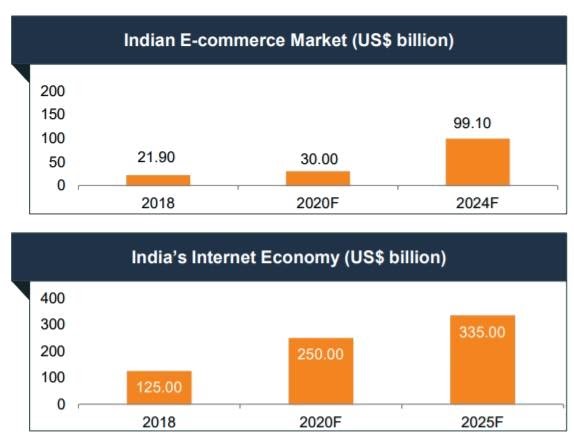Why e-commerce and D2C businesses choose 3PL for their fulfilment needs
Published on May 13, 2021
Last updated on May 22, 2021 • 4 min read

Indian e-commerce has grown and evolved significantly over the last few years. Brands are increasingly turning towards alternative online selling channels beyond ecommerce marketplaces (like D2C and social commerce), to reach consumers. Thereby, requiring fulfilment services beyond the captive logistics of the ecommerce marketplaces like Amazon FBA.
Enter Third Party Logistics service providers (3PL).
3PLs allows e-commerce and D2C companies to save time and effort spent on organising and managing a supply chain by insourcing their logistics processes end-to-end, including picking orders from the manufacturing unit, warehousing, packaging, shipping, etc.
A market study conducted by Mordor intelligence showed that the Indian 3PL market is expected to register a growth rate of over 11.5% during the period of 2020 to 2025, with D2C and e-commerce entrepreneurs demanding new logistics capabilities and complex solutions from the 3PL service providers to help them in the successful management of supply chain processes, bring down conventional logistics costs and handle more complicated tasks as they scale.
In this article, we explore why e-commerce companies are choosing 3PL providers for their fulfilment needs.
Rise of e-commerce in India
A report by IBEF (India Brand Equity Fund) suggested that the Indian e-commerce market will reach US$ 99 billion by 2024, growing at a 27% CAGR over 2019-24.

Source: IBEF (India Brand Equity Fund)
Among other things, this growth will be fuelled by the following factors:
- Increasing internet user-base and smartphone penetration:
India has the second-highest active internet user-base globally and is also one of the largest data consumers. As per IBEF report, this number has grown by a significant proportion in 2020 and is forecasted to grow by approximately 60% by 2022.

Graph by IBEF on Smartphone user base in India
- Covid-19 PandemicThe Covid-19 pandemic has also undeniably contributed to the increase in ecommerce sales as citizens were forced to stay indoors.With more and more people staying indoors and on their screens, there has been a fresh influx of first-time online shoppers as well as an increase in online shopping in general in the absence of an offline avenue.

The 2021 Global Payments report by Worldpay FIS confirmed this by tracking trends across 41 countries and concluded that digital commerce had accelerated during the pandemic. The report projected the Indian e-commerce market, driven by shopping on mobile, to grow 21% annually over the next four years.
There is a good chance many of the first-time online shoppers will permanently shift a part of their shopping online, given that online shopping appeals to the time and comfort conscious consumers leading busy lives.
Logistics providers that are driving the Indian ecommerce industry
There are primarily three types of logistics service providers (LSPs) that are driving ecommerce fulfilment in India. Traditional LSPs, Captive LSPs and e-commerce retail-focused LSPs.
In 2018, an in-depth analysis by KPMG showed that e-commerce retail-focused LSP’s (logistics service providers) occupied 28% of the e-commerce retail logistics sector, and this number has been increasing.

E-commerce retail-focused 3PLs
E-commerce retail-focused 3PLs are designed specifically to handle the demands of e-commerce fulfillment, a lot more intensive operation than offline distribution and fulfillment.
Some 3PLs are equipped to work best with startups and SMEs and provide plug-n-play substitute to building infrastructure, while still giving access to demand analytics, fulfillment infrastructure and advanced WMS technologies.
Many SME’s and startups are choosing to take advantage of this. And some of the benefits include:
- Decentralising inventory for one or two-day delivery without investing time and resources on building infrastructure. (e.g., warehouses, forklifts, labor, etc)
- Alternative to hassles of fulfill orders in-house or via other captive marketplace logistics
- Saving several hours a week packing boxes and shipping orders.
- More time for strategic projects like marketing and product development.
- Lower minimum order requirement
__________________________________________________________________________
Looking for a fulfillment service provider for your e-commerce or D2C business? WareIQ is a 3PL offering end-to-end fulfillment services that include smart inventory management, strategic and customised warehousing solutions and tech-focused optimisation of your supply chain to meet fast shipping timelines and boost sales. Get in touch to know more.
Supercharge your fulfilment with WareIQ now, contact our team.







